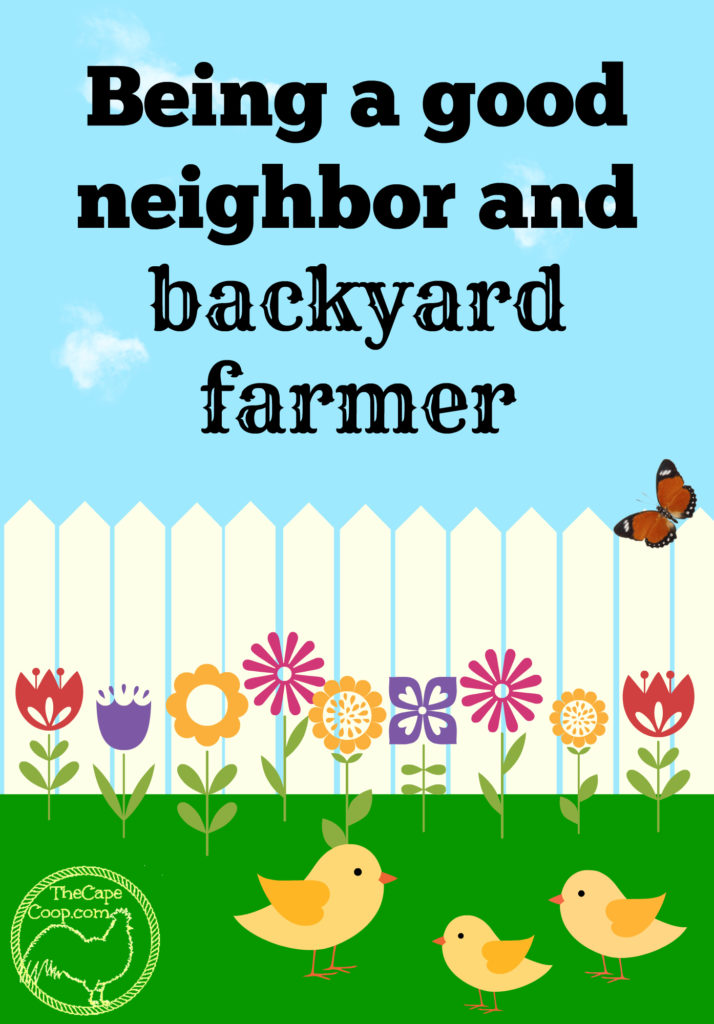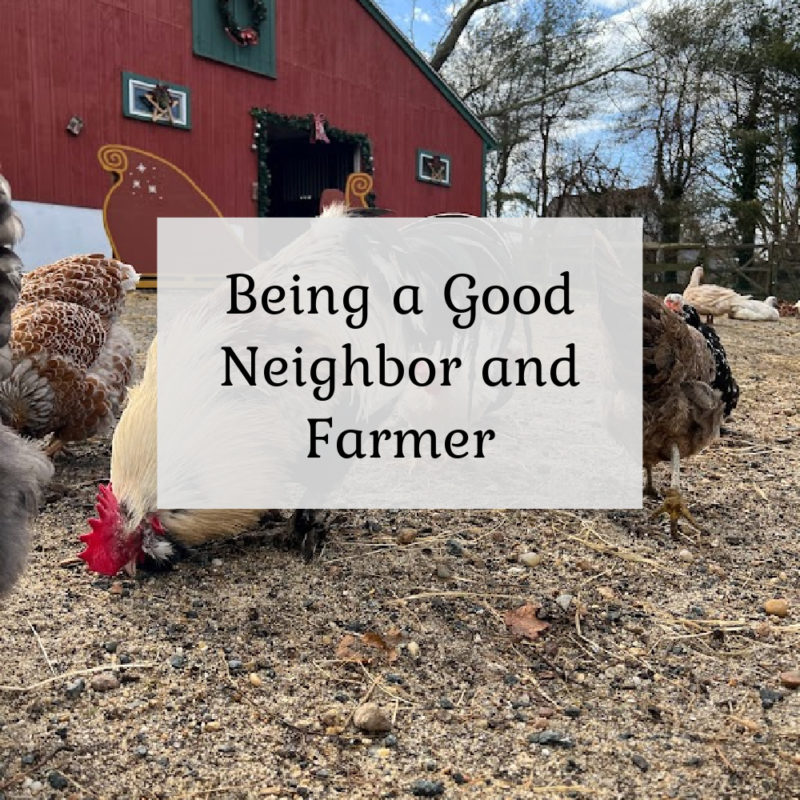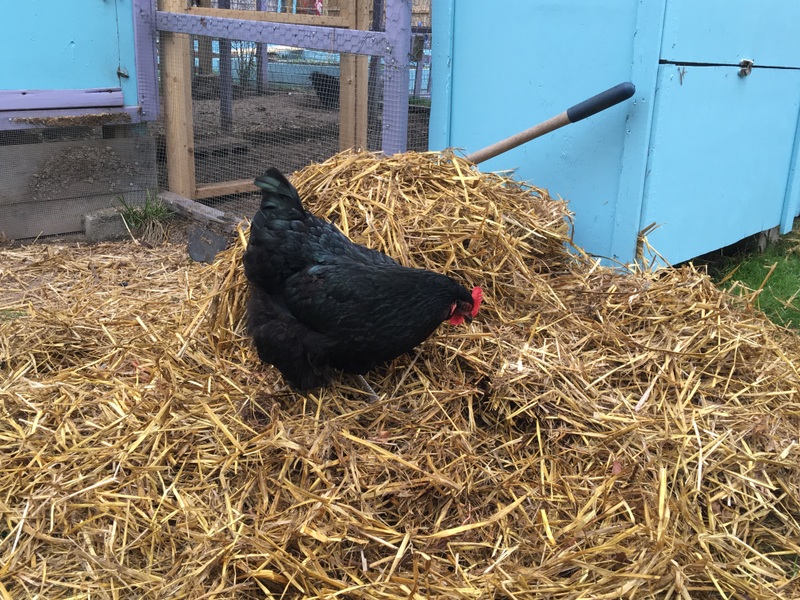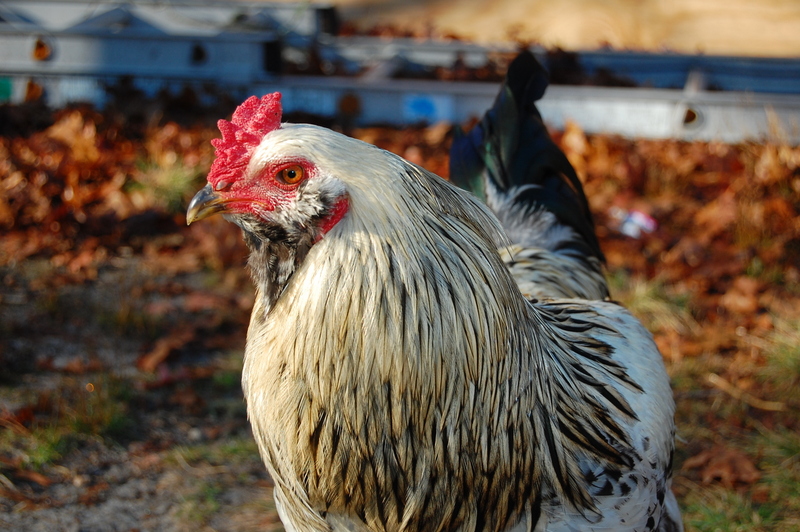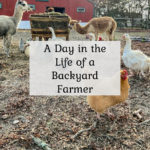---------------------------------------------------------
Farming is an incredibly challenging career. Managing hundreds of acres of crops or hundreds of animals, keeping it all running smoothly, battling the elements, unexpected early frosts, drought, disease….it is certainly not something to undertake casually.
Backyard farming in the suburbs might not have challenges on the scale of commercial farming, but it comes with its own set of special issues. Combine those challenges with the fact that most backyard farmers farm as a hobby, not as a career, and often have full-time jobs to juggle in addition to farm chores – backyard farming really requires a lot of love & commitment (and maybe a little bit of crazy!).
Backyard farmers have to deal with the elements, drought, and disease, the same as large farmers. But the biggest challenge backyard farmers face is one large farms don’t generally have to contend with – neighbors. When farming in the suburbs, you are lucky if you have a half or maybe a full acre. Often you have much less which means your decision to keep chickens or compost your food waste impacts not just you, but several other families. So how can you be a good neighborhood farmer?
Do your research BEFORE you start your farm
Go to Town Hall and find out if you are allowed to keep animals on your property. If you are allowed to, there might be limits on how many or what type you can keep (chickens might be fine, but pigs might not be). Find out if there are rules about how close to the property line you can build a chicken coop or locate a compost pile. Do you need a permit to keep livestock? You might need to have an inspection done? Do you need the written approval of nearby neighbors before you can set up a beehive? Knowing the laws before you start will help save you so many headaches down the road. Click here to read more about researching farming laws
If you want to keep chickens, find out the rules about roosters. My town has no rules about how many chickens or roosters you can keep as long as you don’t become a nuisance. The town next door allows you to keep a rooster as long as you keep him in the coop (muffling the crowing sound) between 7 PM-7 AM. The next town over only allows you to have a rooster if you have over 5 acres, so it really does vary from town to town.
After you check out your town’s laws regarding backyard farms you might also need to check in with your Home Owner’s Association. Find out if they have rules about keeping livestock or gardens. Some might be ok if you rip up your front lawn and turn it into a vegetable garden, but some will not. Find out if you need a privacy fence installed in order to keep animals in the yard.
Finally, if you are planning on adding animals to your yard, and especially if you have really close neighbors, it is nice to check in with neighbors you share a property line with. Let them know about the animals you are planning to keep – and maybe bribe them with free eggs, honey, or goat’s milk if they seem hesitant.
Think about your farm layout with neighbors in mind
The sounds and smells of your farm will not just affect you, but everyone around you. You might think the perfect place for your compost pile is at the north end of your garden. If that also happens to be 20 feet from your neighbor’s back deck, you should really rethink that placement. Don’t position your chicken coop outside of your neighbor’s bedroom window. Taking your neighbors into consideration is not only a nice thing to do, but it could also save you from getting complaints raised against you to the town.
Predator & pest control
Compost piles and animal feed will attract rodents. Having livestock in your yard will attract hungry predators. These things will happen, and the rats that move in to eat your chicken feed will certainly branch out into your neighbor’s yard looking for dessert. The coyote that thinks your rabbits would make a tasty meal, would also love to eat your neighbor’s cat. The flies in your compost bin will make their way to your neighbor’s BBQ.
It is impossible to eliminate predators and pests on a backyard farm, but there are lots of things you can do to minimize them. Properly managing your compost pile and being careful not to add certain products will greatly eliminate flies, rodents & smells. Click here to read my post on composting.
Keep all the extra feed, scratch, and treats for your animals in sturdy metal bins to keep rodents out. Don’t leave food & water out in the open all night (put feed in the coop and lock up the coop after dark). Click here to read all my tips on keeping rodents out.
Make sure your animals have predator-proof housing at night with sturdy latches. Use 1/2 inch hardware cloth instead of chicken wire to cover windows and the chicken run. Many large predators can rip or chew right through chicken wire. Bury the hardware cloth 18 inches down all along the perimeter of the run to discourage digging predators.
Don’t get in over your head
Most backyard farmers farm as a hobby, not as a job. This means they generally work full-time outside of the house. Before you tear up your front lawn and make a 20,000 square-foot vegetable garden make sure you have time to maintain that and it won’t become a neighborhood eyesore. If you work long hours, having a lot of livestock that need to be fed, watered, and cleaned daily might not be the right choice for you. Start out with 3-4 chickens and make sure you can handle the chore schedule before jumping in with a barnyard full of critters that will be constantly disturbing your neighbors squawking for food or having unpleasant odors from uncleaned stalls.
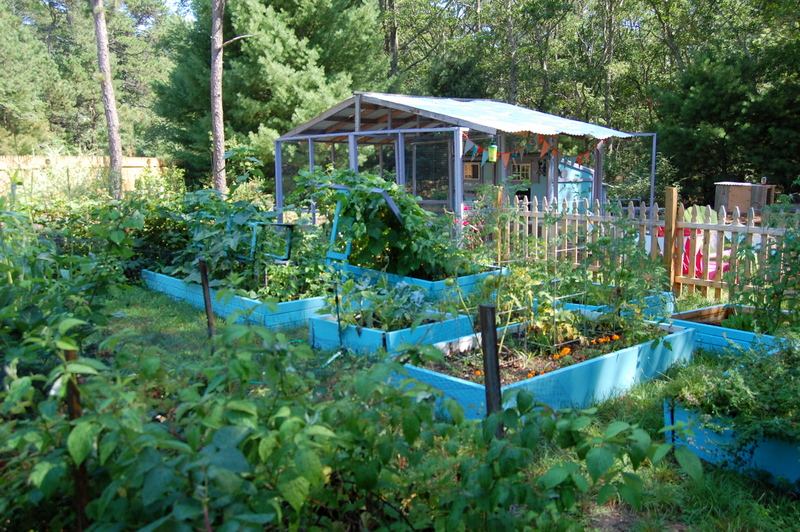
Noise control
Animals make noise, as a farmer you might love hearing the sound of your rooster’s crow or your ducks happily quacking as they splash in their pool. Your neighbors might not share that joy. Many towns ask that you not leave a barking dog in your yard for more than 10 minutes, and the same courtesy rule should be extended to your livestock. You should go out and investigate if your animals are making noise for an extended period of time – not just as a courtesy to your neighbors but also to make sure there isn’t a problem. They could be scared because a hawk is circling or some other predator is lurking in the woods.
A few words on roosters…
Roosters require special consideration. Their crow can be heard for several blocks, and it won’t just be at sunrise. Roosters crow all day – at sunrise, at 2 AM, at noon – whenever they feel like talking. Roosters can also take their job as flock protector way too seriously. They could attack you, or your neighbor’s child or pet trying to defend their turf. Click here to read my post on keeping roosters.
Good fences make good neighbors
There is a lovely poem by Robert Frost called Mending Wall about two farmers who are repairing a stone wall that separates their farms. One farmer asks why they even have the wall as it runs through the woods, and the other replies “good fences make good neighbors”. Keeping your chickens from tearing up your neighbor’s flower bed and keeping your goats from chewing up your neighbor’s patio set are pretty basic, common-sense ways to be a good neighbor. Installing a sturdy fence to keep all your farming adventures contained in your yard is a must-do for any suburban farmer.
Want even more tips on living sustainably in the suburbs? Click here for an article I contributed to on Redfin
